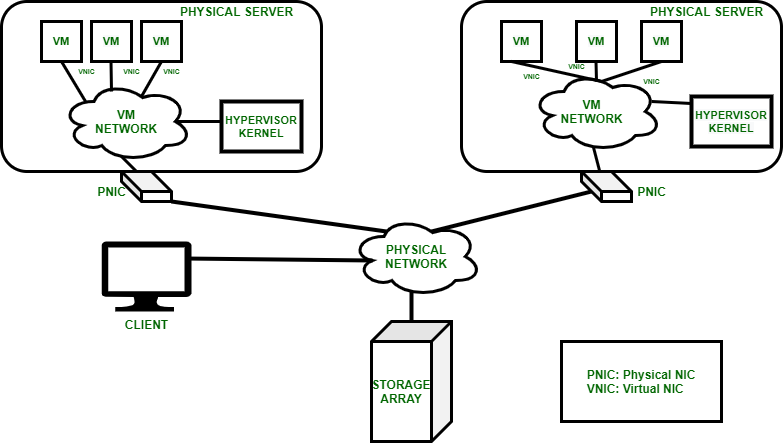Network virtualization is the process of abstracting the physical network infrastructure into a logical network that can be provisioned and managed in a centralized way. This allows for greater flexibility, scalability, and efficiency in network design and management.
There are many benefits to network virtualization, including:
- Reduced costs: Network virtualization can help to reduce costs by consolidating physical network infrastructure and simplifying network management. For example, by virtualizing the WAN, organizations can reduce the number of routers and switches they need to deploy. This can lead to significant cost savings in terms of hardware, software, and maintenance.
- Increased agility: Network virtualization can help organizations to increase their agility by making it easier to provision and manage new network resources. For example, if an organization needs to add a new virtual machine, they can simply create a new virtual network and connect it to the existing network. This can be done much more quickly and easily than if the organization had to add a new physical network device.
- Improved security: Network virtualization can help to improve security by providing greater visibility and control over the network. For example, by virtualizing the data center, organizations can segment their network into different zones, each with its own security policy. This can help to protect sensitive data from unauthorized access.
- Enhanced performance: Network virtualization can help to enhance performance by providing a more efficient way to deliver network services. For example, by virtualizing the firewall, organizations can distribute firewall functions across multiple servers. This can help to improve performance by reducing the load on individual servers.
In addition to these benefits, network virtualization can also help organizations to comply with industry regulations. For example, by virtualizing the network, organizations can more easily track and audit network traffic. This can help them to comply with regulations such as PCI DSS and HIPAA.
Overall, network virtualization is a powerful technology that can provide many benefits for organizations. As the demand for network virtualization continues to grow, it is likely to become an increasingly important part of the IT landscape.
Here are some additional benefits of network virtualization:
- Improved disaster recovery: Network virtualization can help to improve disaster recovery by making it easier to replicate virtual networks. This can help organizations to recover from disasters more quickly and easily.
- Simplified management: Network virtualization can help to simplify network management by providing a single pane of glass for managing all of the virtual networks in an organization. This can help to reduce the time and effort required to manage the network.
- Enhanced flexibility: Network virtualization can help to enhance flexibility by making it easier to change the network topology. This can be helpful in situations where the organization’s needs change.
As you can see, there are many benefits to network virtualization. If your organization is looking for ways to improve its network, network virtualization is a technology that you should consider.
Challenges of Network Virtualization
While network virtualization offers many benefits, there are also some challenges that organizations need to be aware of. These challenges include:
- Complexity: Network virtualization can be a complex technology to implement and manage. Organizations need to have a good understanding of the technology in order to get the most out of it.
- Security: Network virtualization can introduce new security risks. Organizations need to carefully plan their security strategy before implementing network virtualization.
- Cost: Network virtualization can be a costly investment. Organizations need to weigh the benefits of network virtualization against the costs before making a decision.
Conclusion
Network virtualization is a powerful technology that can offer many benefits for organizations. However, there are also some challenges that organizations need to be aware of. If your organization is considering network virtualization, it is important to carefully evaluate the benefits and challenges before making a decision.






